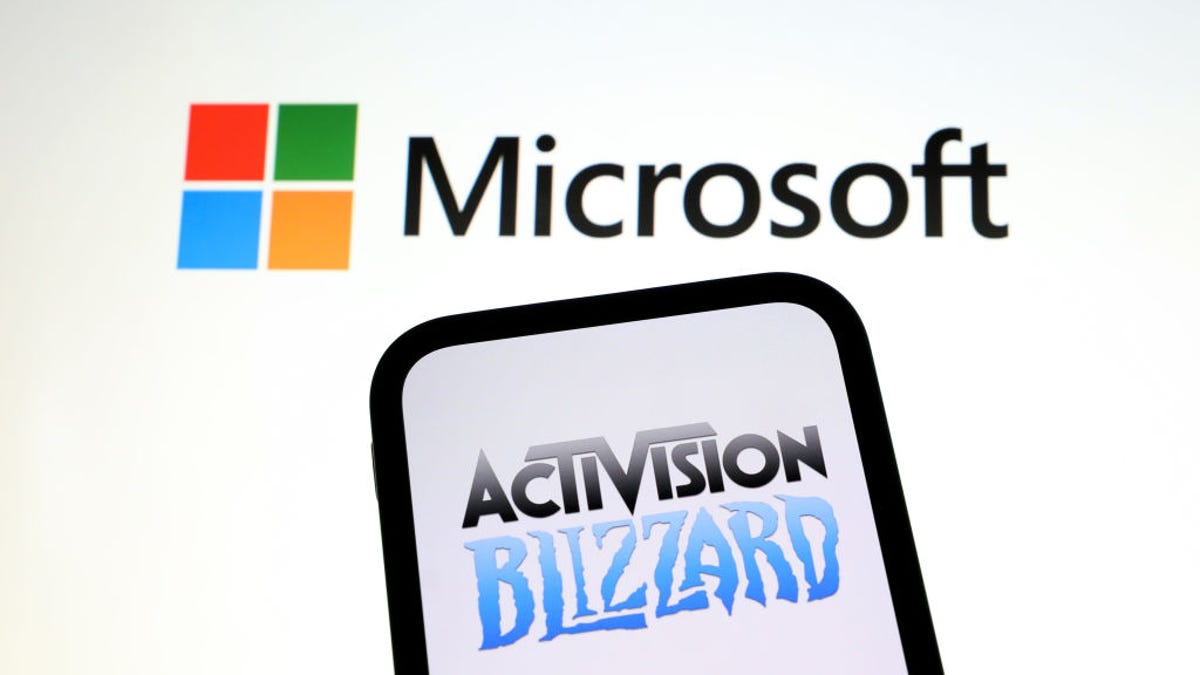Microsoft Tells FTC Its $69B Activision Deal Won't Harm Competition
Its response to a lawsuit seeking to block the mega-deal argues that the acquisition is about making the Xbox more competitive.

Microsoft announced its plans to buy game maker Activision Blizzard in January.
Microsoft on Thursday filed a response to a Federal Trade Commission lawsuit aiming to block its $68.7 billion purchase of Activision Blizzard, arguing that it won't hurt competition in the video game industry.
The FTC said earlier this month in its lawsuit challenging the acquisition that the software giant will "harm competition" among game console makers including Sony and Nintendo. Microsoft countered in its filing that the acquisition is about helping its Xbox unit to become more competitive.
"Xbox wants to grow its presence in mobile gaming, and three quarters of Activision's gamers and more than a third of its revenues come from mobile offerings," Microsoft said in its 37-page response. "Xbox also believes it is good business to make Activision's limited portfolio of popular games more accessible to consumers, by putting them on more platforms and making them more affordable."
The deal, announced earlier this year, is the largest ever for the software maker and also within the video game industry. Microsoft, which also makes the Xbox video game console, has been speaking with regulators around the world in an effort to gain approval for its acquisition. Microsoft earlier said it expects to complete the deal sometime around the summer of 2023.
The FTC's move against Microsoft marks one of the US government's biggest efforts to take on the tech industry, which has witnessed companies like Microsoft, Apple, Amazon, Alphabet and Meta becoming some of the most highly valued companies on the planet. Amid all that growth, competitors and regulators have been asking whether the tech industry has too much power and whether companies have been acting as monopolies.
The agency argued in its Dec. 8 lawsuit against the software giant's acquisition of the Call of Duty maker, saying Microsoft had used earlier acquisitions to make several high-profile upcoming titles like the space exploration game Starfield and the vampire shooting game Redfall exclusive to devices powered by its software. Microsoft said it offered Sony the right to sell the military shooter as part of its PlayStation Plus service, but "Sony refuses to deal," Microsoft said in its filing.
"The acquisition of a single game by the third-place console manufacturer cannot upend a highly competitive industry," Microsoft said in its response. "That is particularly so when the manufacturer has made clear it will not withhold the game. The fact that Xbox's dominant competitor has thus far refused to accept Xbox's proposal does not justify blocking a transaction that will benefit consumers."
The FTC said it had confidence it its case and is looking forward to taking it to trial.
"This $69 billion acquisition would give Microsoft the means to harm competition in multiple fast-growing gaming markets," John Newman, deputy director of the FTC's Bureau of Competition, said in a statement.
In the meantime, Microsoft said it hopes an amicable resolution can be found that benefits all in the industry.
"Even with confidence in our case, we remain committed to creative solutions with regulators that will protect competition, consumers, and workers in the tech sector," Brad Smith, Microsoft's president and vice chair, said in a statement.
Activision CEO Bobby Kotick also defended the deal in a separate statement Thursday, saying that "There is no sensible, legitimate reason for our transaction to be prevented from closing."

